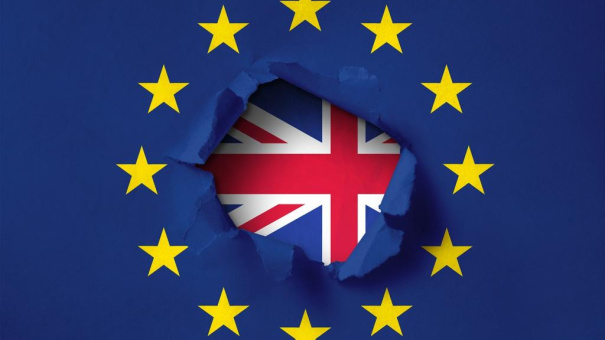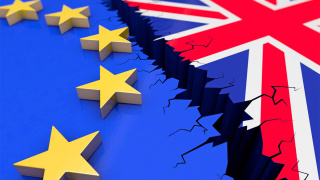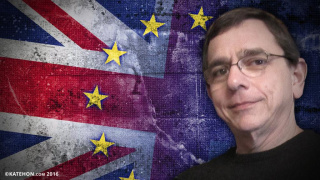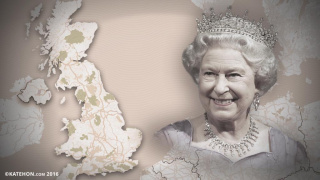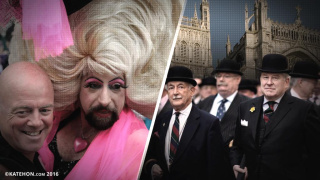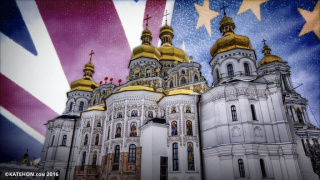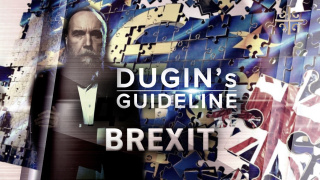A Brief Word on Brexit
Yesterday evening – that is, the 31st January 2020 – at 11pm GMT, my country left the European Union. We did so after four years of heated and often hysterical argument. Nothing much seemed to have changed this morning. I went out shopping, to see the same people buying the same things at the same prices. Since we are now in a transition period, lasting till the end of this year, in which we remain within the Single Market and subject to the rules of the European Union, it would have been odd if anything visible had changed. Yet, if nothing visible had changed, one very important thing has changed.
The ruling class has suffered its first serious defeat in living memory. The coalition of politicians, bureaucrats, lawyers, educators, media people and associated business interests who draw wealth and power from an extended state was committed to European Union membership. This coalition was never uniformly committed to membership. Some elements were strongly committed, others only mildly. But all were agreed that membership was good for them, so far as it blurred the lines of accountability and gave the exercise of power a supranational appearance. This was the position before the 2016 Referendum, which was not expected to go as it did. When the result was to leave, ruling class support for membership strengthened. Long before it ended, the referendum campaign had become a vote of confidence in the ruling class. Losing this vote was a shock. The people could not be given what they had asked for. It would set a precedent. Give them that, and they would start believing they lived in a democracy where votes counted for something. If this happened, the people might be inclined to start asking for other things – all things variously unwelcome within the ruling class.
The ruling class response to losing fell under two headings. One was to deny the validity of the vote and to demand another, and to make sure that this one was rigged in favour of remaining. The other was to deliver an exit so partial that it amounted to continued membership, and that could be upgraded to full membership after a few years of propaganda. These responses eventually merged into a single project of dragging things out so long that the people would get bored and stop demanding that their voice should be heard.
These responses failed. The people had spoken, and they continued speaking – eventually giving the Conservatives their biggest majority in a generation. Because of this, our departure yesterday was more definite than had previously been imagined. Immediately after the Referendum, I think most of us would have accepted a slow disengagement – perhaps including ten or twenty years of remaining within the Single Market, though out of the customs and political union. The next three years of bad faith killed any taste for gradualism.
I have mentioned the bad faith of our own rulers. But the European Union also overplayed its hand. It could have put on a sad face, and entered into one of those “constructive dialogues” that give negotiating parties nearly everything they think essential, and leave no bitter aftertaste. Instead, the central institutions and the member states put on very hard faces and insisted on treating us like a defeated or beggared nation with nowhere else to turn. It may be that they wanted to make us an example to any other member state inclined to leave. It may be that they saw the political deadlock in London as an excuse for paying us back for everything we had done to them since Crecy and Agincourt.
And so we are leaving. Since yesterday, we have been outside the political union. We have another eleven months inside the economic union. During this transition, we can try to arrange a satisfactory close relationship. If this cannot be arranged, we are at perfect liberty to walk away and trade with the European Union on the same basis as we trade with Ecuador and Vietnam.
So far as libertarians and conservatives are at war with a bloated managerial state, we have won just a single battle. It is, however, a potentially significant battle. Since the end of the Cold War, we have been told with increasing confidence that we were living in a “post-democratic age,” where government would move inexorably upwards to the supranational level. Well, the people of a rather important country have now established that their voice must be heard and that government must be accountable to them.A further point is that the series of political crises we have faced since 2016 has strengthened trust in our governing institutions. We are most definitely not what we could have become had the right choices been made after about 1910. Even so, we can take pride in the nature and resolution of the crises we have faced. Our ruling class did not want us to leave. It liked the European Union for sinister reasons. It may also have believed continued membership was in the public interest. To keep us in, it used every legal device the Constitution allowed. It ripped up centuries of convention in the House of Commons. It poured out a flood of propaganda. It appealed repeatedly to the biased judges of the Supreme Court. Yet it never stepped actually outside the law. Nor did my side lose its head. Given the nature of the dispute, there are few countries that would not have descended into violence or other illegality. In my country, we were finally allowed a general election, in which the votes were freely cast and honestly counted. The voice of the people could be shouted down after June 2016. It was not shouted down after December 2019. We left last night with a few peaceful demonstrations of joy or disappointment. Today, it was shopping as usual.
I will end by slightly adapting the words of Pitt the Younger after the Battle of Trafalgar: “England has saved herself by her exertions, and will, as I trust, save the world by her example.”
The people of my country have stood firm. How firm will the American people stand this coming November?
